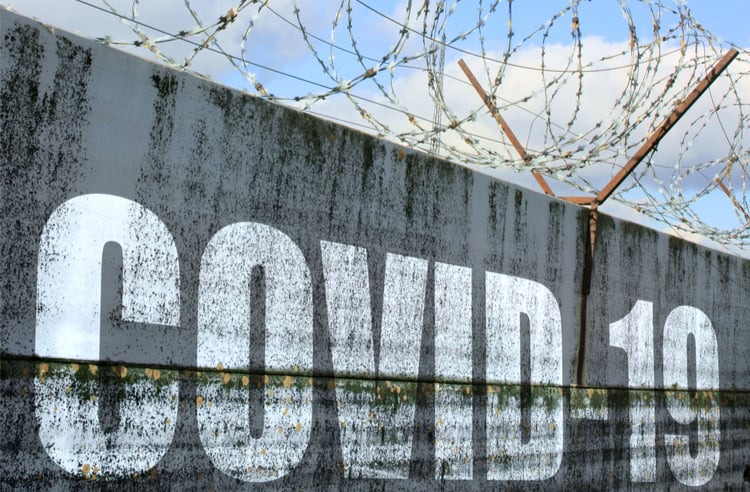Supreme Court lifts injunction requiring COVID-19 safety measures at jail

Image from Shutterstock.com.
The U.S. Supreme Court on Wednesday lifted an injunction requiring the sheriff of Orange County, California, to implement COVID-19 safety measures at the jail.
The court majority issued an order but no opinion on the emergency request. The court’s four liberal justices would have allowed the injunction to remain in place, although only Justice Ruth Bader Ginsburg joined a dissent by Justice Sonia Sotomayor.
“This court stays the district court’s preliminary injunction,” Sotomayor wrote, “even though the jail recently reported 15 new cases of COVID-19 in a single week (even with the injunction in place), even though the jail misrepresented under oath to the district court the measures it was taking to combat the virus’s spread, and even though the jail’s central rationale for a stay (that the injunction goes beyond federal guidelines) ignores the lower courts’ conclusion that the jail’s measures fell ‘well short’ of the Centers for Disease Control and Prevention (CDC) guidelines.”
The jail asserted that it was implementing social distancing, providing enough soap for frequent hand-washing, and isolating and testing symptomatic individuals.
“Dozens of inmate declarations told a different story,” Sotomayor said.
Inmates said they were transported to and from the jail in cramped buses, they socialized in dayrooms with no space for social distancing, and they slept in bunk beds 2 to 3 feet apart, Sotomayor said.
Inmates were told that they could best protect themselves with frequent hand-washing, but many inmates said they received just one small, hotel-sized bar of soap per week. Many inmates said they were denied COVID-19 tests, and some told of sharing common spaces with infected or symptomatic individuals.
“The jail also faces an uphill battle in its claim of irreparable harm,” Sotomayor said. “The measures it now decries as vexatious judicial micromanagement are the same measures that just months ago it claimed were, ‘at a minimum,’ already being implemented. If the jail is already doing everything required by the injunction, then what irreparable harm does the injunction pose? And if it is not, and the jail misrepresented its actions under oath to the district court, then why should the jail benefit from this court’s equitable discretion?”
The sheriff had argued that the injunction “hamstrings” his department, and the federal appeals court that upheld the injunction is “an outlier of law on this issue.”
The New York Times, the Washington Post and SCOTUSblog had coverage of the Supreme Court’s order.
The case is Barnes v. Ahlman.
See also:
ABAJournal.com: “Chemerinsky: How will SCOTUS handle future issues related to the COVID-19 crisis?”



